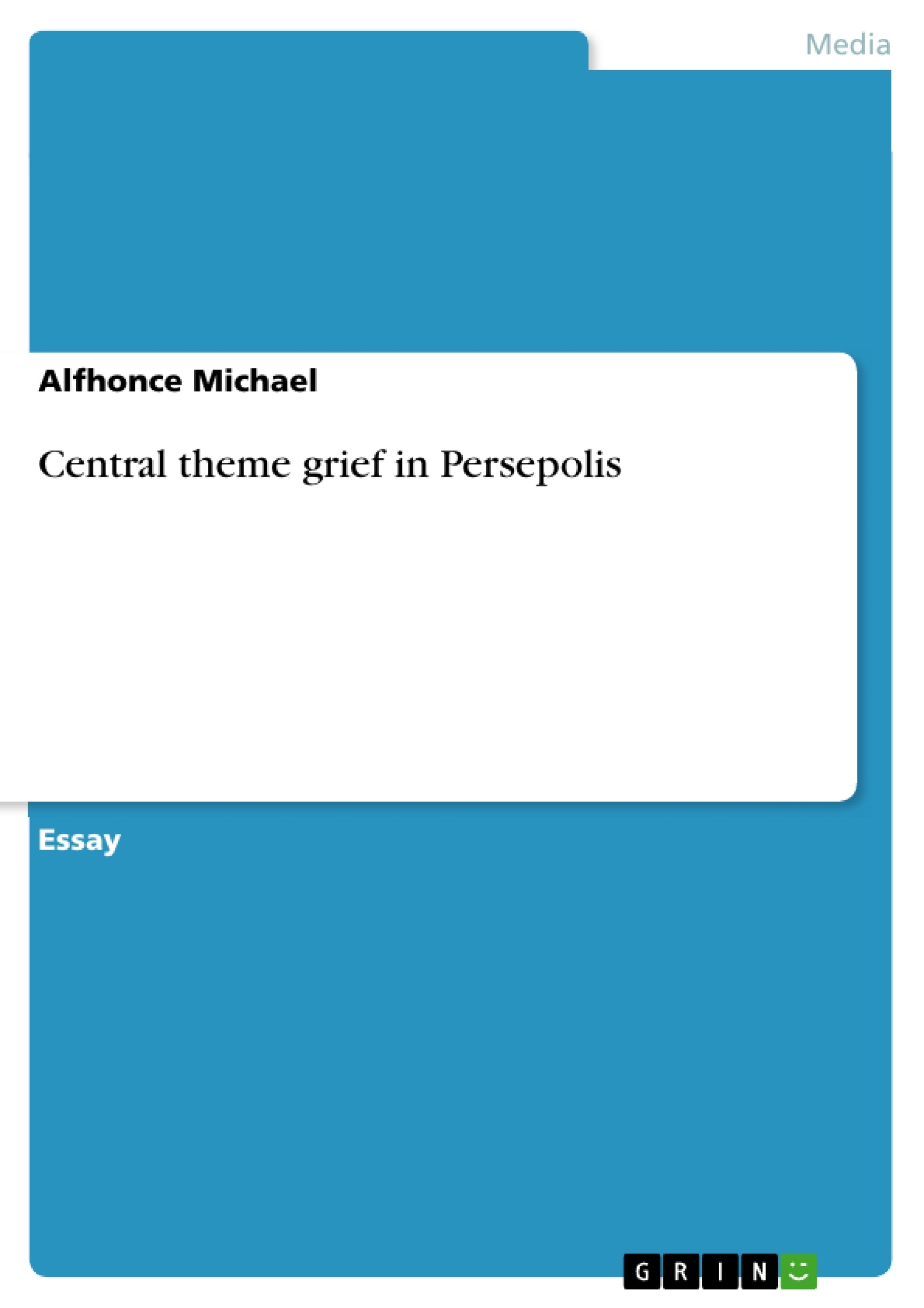I want you to write about: How is grief a central theme in Persepolis, and analyze the role of trauma / grief in the literary criticism on Maus and apply this to Persepolis 5 page comparative essay: Compare two literary critics ″are attached,″ and than argue your own perspective. You must combine your own argument about the text with research evidence. You must have thesis, demonstrating your argument that should run throughout the paper. You must include a M.L.A. style bibliography. The conclusion should be suggest an intriguing application or implication of the idea or argument presented. it should not be a dull summary. The conclusion should be thought-provoking and memorable. For our arguments, I just want them to be western modern thoughts.
Table of Contents
- Grief as a Central Theme
- Grief in "Persepolis"
- Satrapi's Experiences in Iran
- The Impact of the Revolution
- Grief After the Revolution
- Satrapi's Personal Journey
- Grief in "Maus"
- Grief in "Companionship in Grief"
- Grief in "Solomon Thieves"
- Literary Criticism of "Maus" and "Persepolis"
- The Impact of Grief
Objectives and Key Themes
This text explores the universal experience of grief through a comparative analysis of four literary works: "Persepolis," "Maus," "Companionship in Grief," and "Solomon Thieves." The author examines how grief manifests in various contexts, including political upheaval, wartime trauma, and personal loss.
- The multifaceted nature of grief
- The impact of grief on individuals and society
- The representation of grief in literature
- Coping mechanisms for dealing with grief
- The importance of social support in navigating grief
Chapter Summaries
The text begins by introducing the concept of grief as a universal human experience and its potential consequences. It then delves into the portrayal of grief in "Persepolis," exploring the author's personal experiences with grief in the context of the Iranian Revolution. The impact of the revolution and the subsequent Islamic regime on the Iranian people is discussed, highlighting the pervasive sense of grief that resulted from political and social upheaval. Satrapi's own experiences with grief, including her exile and alienation from her family, are also explored.
The text then examines the depiction of grief in "Maus," focusing on Vladek Spielgelman's experiences as a Polish Jew during the Holocaust. The author highlights the profound impact of the Nazi regime's atrocities on Jewish survivors, showcasing the devastating effects of war-induced trauma and loss.
"Companionship in Grief" is explored as a memoir that sheds light on the experience of grief following the death of a spouse. The text examines how bereavement can lead to despair, anguish, and profound emotional distress.
The final chapter summarized here focuses on "Solomon Thieves," which illustrates the theme of grief through the story of a knight named Martin, who suffers inconsolable grief after the loss of his childhood love. This chapter explores the enduring nature of grief and its impact on the individual's emotional well-being.
Keywords
The central themes of this text revolve around the universal experience of grief, its diverse manifestations in various contexts, and the literary representations of this complex emotion. Key terms include: grief, political upheaval, war trauma, personal loss, "Persepolis," "Maus," "Companionship in Grief," "Solomon Thieves," literary analysis, coping mechanisms, social support, and self-acceptance.
- Citar trabajo
- Doctor Alfhonce Michael (Autor), 2016, Central theme grief in Persepolis, Múnich, GRIN Verlag, https://www.grin.com/document/373293




